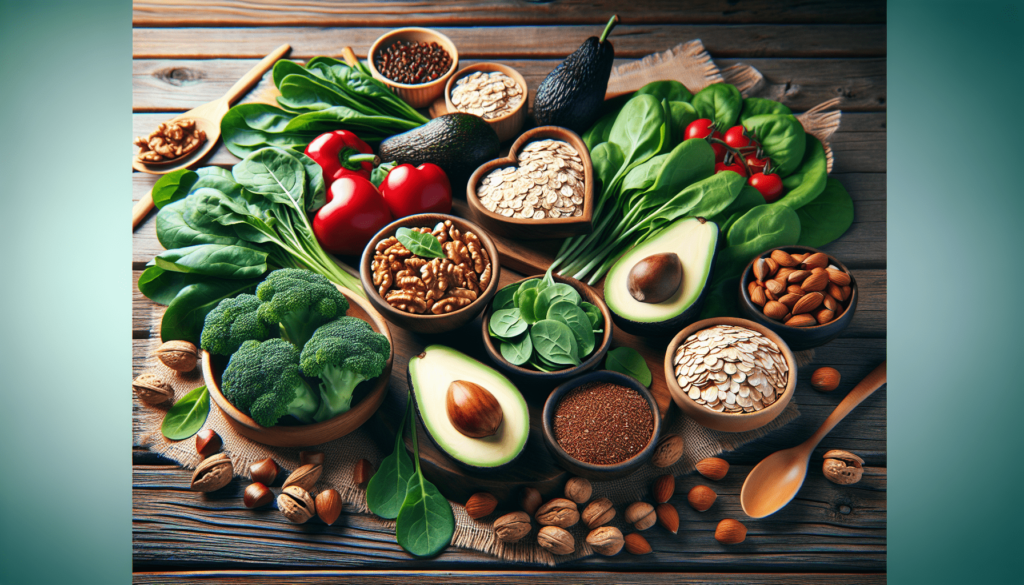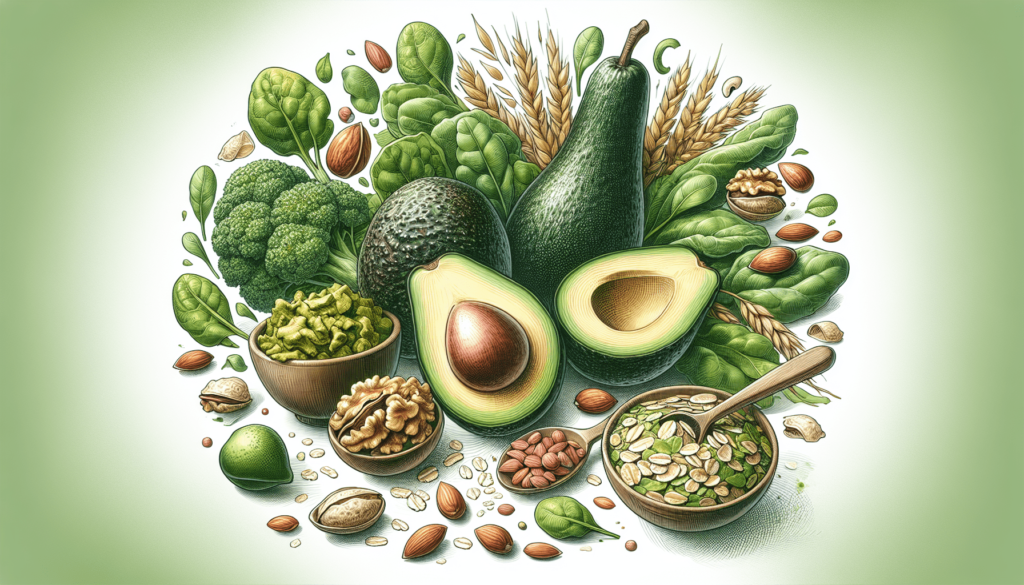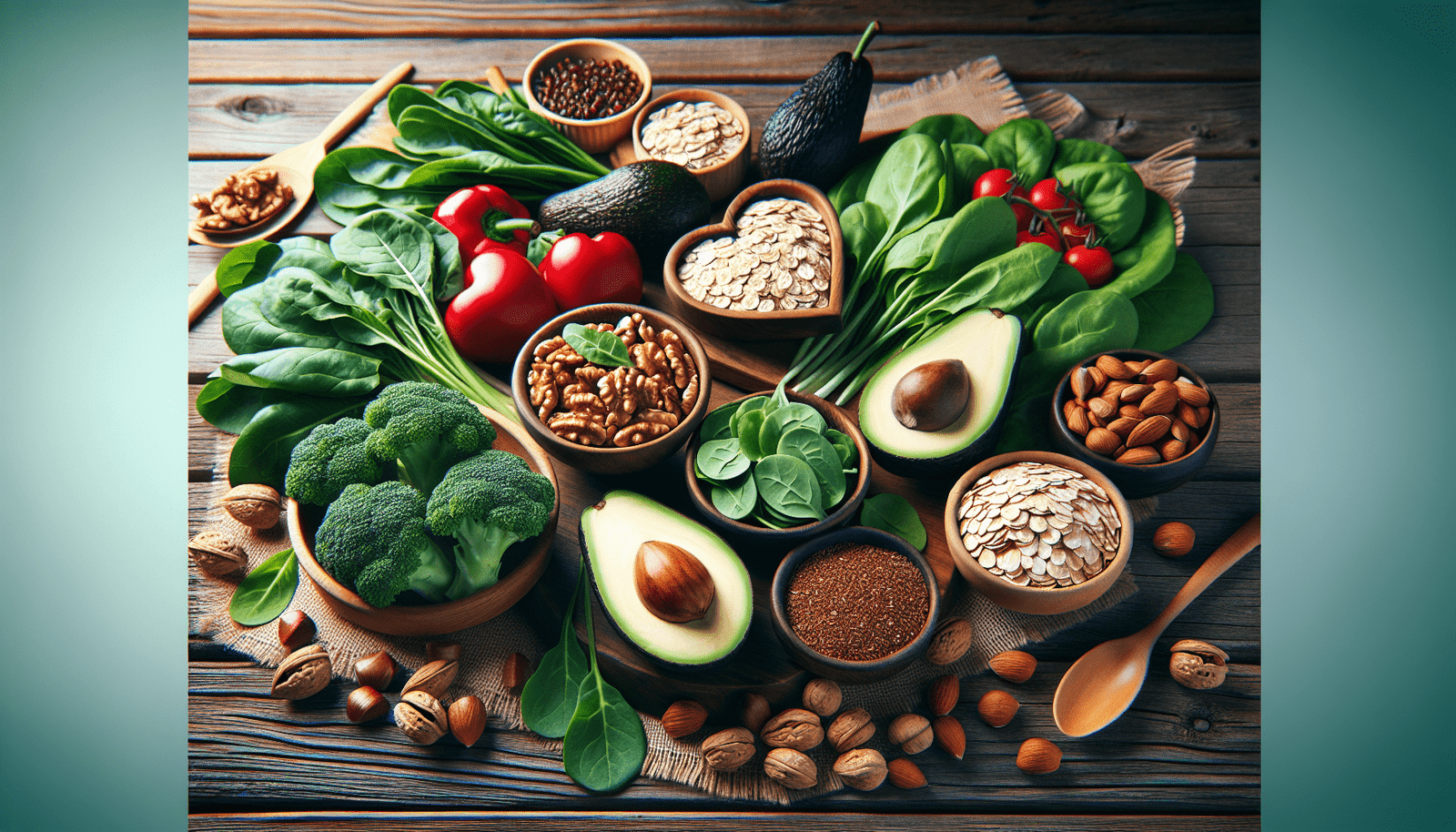Welcome to the informative world of understanding cholesterol! In this article, you will learn about the difference between good and bad cholesterol, as well as discover what foods you can eat to help maintain healthy cholesterol levels. By the end of this read, you will feel empowered and knowledgeable about how to make positive choices for your heart health. Let’s delve into the fascinating realm of demystifying cholesterol together!
Demystifying Cholesterol: Good, Bad, and What to Eat
Have you ever wondered about cholesterol and how it affects your health? It’s a common topic that can be confusing, but understanding it is essential for maintaining good health. In this article, we’ll break down the different types of cholesterol, what they mean for your health, and what you can eat to keep your cholesterol levels in check.
What Is Cholesterol?
Cholesterol is a waxy substance found in the fats (lipids) in your blood. Your body needs cholesterol to build healthy cells, but having high levels of cholesterol can increase your risk of heart disease.
Good Cholesterol vs. Bad Cholesterol
Cholesterol is often classified into two main types: HDL (high-density lipoprotein) cholesterol, or “good” cholesterol, and LDL (low-density lipoprotein) cholesterol, or “bad” cholesterol.
Good cholesterol helps remove LDL, or bad cholesterol, from the arteries, while bad cholesterol can lead to plaque buildup in the arteries, which can increase the risk of heart disease.
What Affects Cholesterol Levels?
Several factors can affect your cholesterol levels, including genetics, diet, weight, physical activity, age, and more.
Genetics
Some people are genetically predisposed to have high cholesterol levels due to conditions like familial hypercholesterolemia. If high cholesterol runs in your family, it’s essential to monitor your cholesterol levels regularly.
Diet
What you eat can have a significant impact on your cholesterol levels. Diets high in saturated and trans fats can raise bad cholesterol levels, while eating plenty of fruits, vegetables, whole grains, and lean proteins can help lower cholesterol.
Weight
Being overweight or obese can also raise your cholesterol levels, particularly your bad cholesterol. Losing weight through a combination of diet and exercise can help improve your cholesterol levels.

What to Eat to Manage Cholesterol
A heart-healthy diet can play a crucial role in managing your cholesterol levels. Here are some foods to include in your diet to help keep your cholesterol in check:
| Food | Benefits |
|---|---|
| Fruits and Vegetables | Packed with fiber and antioxidants that can help lower bad cholesterol levels and reduce inflammation in the body. |
| Whole Grains | High in fiber, vitamins, and minerals, whole grains can help lower cholesterol levels and reduce the risk of heart disease. |
| Nuts and Seeds | Rich in healthy fats, fiber, and antioxidants, nuts and seeds can help lower bad cholesterol and reduce the risk of heart disease. |
| Fatty Fish | Contains omega-3 fatty acids that can help lower bad cholesterol levels and reduce inflammation in the body. |
| Legumes | High in fiber and plant-based protein, legumes can help lower cholesterol levels and support heart health. |
Cholesterol-Lowering Foods to Include in Your Diet
Incorporating cholesterol-lowering foods into your diet can be an effective way to manage your cholesterol levels naturally. Here are some foods that can help lower bad cholesterol:
Oats
Oats contain beta-glucans, a type of soluble fiber that can help lower bad cholesterol levels. Eating oats for breakfast or as a snack can be an easy way to increase your fiber intake and support heart health.
Avocados
Avocados are rich in monounsaturated fats, which can help raise good cholesterol levels and lower bad cholesterol. Adding avocado to salads, sandwiches, or smoothies can be a tasty way to support heart health.
Olive Oil
Olive oil is a heart-healthy fat that can help raise good cholesterol levels and lower bad cholesterol. Using olive oil in cooking or as a salad dressing can be a simple way to improve your cholesterol profile.
Berries
Berries are rich in antioxidants and fiber, which can help lower bad cholesterol levels and reduce inflammation in the body. Adding berries to your breakfast, snacks, or desserts can be a delicious way to support heart health.

Foods to Avoid to Manage Cholesterol
In addition to incorporating cholesterol-lowering foods into your diet, it’s essential to limit foods that can raise bad cholesterol levels. Here are some foods to avoid or consume in moderation:
| Food | Recommendations |
|---|---|
| Saturated Fats | Limit intake of red meat, processed meats, full-fat dairy products, and fried foods high in saturated fats, which can raise bad cholesterol levels and increase the risk of heart disease. |
| Trans Fats | Avoid foods containing trans fats, such as processed foods, baked goods, and margarine, as they can raise bad cholesterol levels and lower good cholesterol levels, increasing the risk of heart disease. |
| Added Sugars | Reduce consumption of sugary beverages, desserts, and processed foods high in added sugars, as they can raise triglyceride levels, lower good cholesterol levels, and contribute to weight gain and heart disease risk. |
| High-Sodium Foods | Limit intake of high-sodium foods like processed meats, canned soups, and fast food, as excessive sodium consumption can increase blood pressure, raise cholesterol levels, and elevate the risk of heart disease and stroke. |
Lifestyle Changes for Managing Cholesterol
In addition to diet, there are several lifestyle changes you can make to help manage your cholesterol levels and support heart health:
Exercise Regularly
Physical activity can help raise good cholesterol levels and lower bad cholesterol levels. Aim for at least 150 minutes of moderate-intensity exercise per week, such as brisk walking, swimming, or cycling.
Quit Smoking
Smoking can lower good cholesterol levels and raise bad cholesterol levels, increasing the risk of heart disease. Quitting smoking can improve cholesterol levels and reduce the risk of heart disease and other health problems.
Manage Stress
Chronic stress can impact cholesterol levels and heart health. Find healthy ways to manage stress, such as exercise, meditation, deep breathing, or engaging in hobbies you enjoy.
Conclusion
Cholesterol is an essential substance in the body, but having high levels of bad cholesterol can increase the risk of heart disease. By understanding the different types of cholesterol, what affects cholesterol levels, and what you can eat to manage cholesterol, you can take steps to support your heart health and overall well-being. Making small changes to your diet and lifestyle can have a significant impact on your cholesterol levels and reduce the risk of heart disease. Remember, it’s never too late to start taking care of your heart. Start making healthier choices today for a healthier tomorrow!

